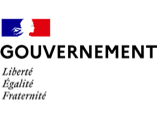Digital healthcare in Luxembourg
Key figures
660 000
inhabitants
5%
of GDP for the healthcare sector in 2021
935 000
people affiliated to the social security system, including 1/3 cross-border workers
136
Luxembourg-based MedTech companies
A commitment to quality and innovation to guarantee an inclusive healthcare system
In Luxembourg, the Ministère de la Santé and the Ministère de la Sécurité Sociale are responsible for the healthcare system, which is founded on values such as quality, equity, trust and attractiveness.
The healthcare system, focused on the patient, guarantees universal access to care, whether for residents or foreign workers through their employment contracts.
Luxembourg's social security system:
It is financed by public contributions and is based on the principle of compulsory membership. Risks covered include sickness, maternity, industrial accidents or occupational diseases, old age and disability, as well as long-term care insurance. The number of people affiliated to one of the national health insurance schemes corresponds to 141% of Luxembourg's population, since more than a third of workers are cross-border commuters.
State-funded healthcare accounts for 83% of total healthcare expenditure. The role of private insurance in Luxembourg is mainly supplementary, covering around 60% of the population.
The National Health Plan:
In 2023, Luxembourg published its Plan National Santé (PNS) for the next 10 years. This strategy, based on WHO recommendations, sets out the guidelines the country wants to put in place to improve its healthcare system. In particular, it includes a section on digital health, which aims to put in place more investments to improve the interoperability of IT systems and promote access to and sharing of healthcare data.
The priorities identified are:
- Modernization and digitization of healthcare infrastructures;
- Improving digitization with the development of the Luxembourg National Data Service (LNDS) and the creation of a Health Data Hub for efficient use and sharing of healthcare data;
- Cybersecurity at the heart of the development of digital healthcare infrastructures and platforms;
- Support for MedTech companies in accessing the market;
- Participation in international projects such as NCER-PD (research initiative on early diagnosis of Parkinson's disease) or Clinnova (initiative to foster precision medicine driven by artificial intelligence), and contribution to European initiatives.
How to access the digital healthcare market in Luxembourg?
1. Register the digital medical device with the Health Department
Before placing the device on the market, the manufacturer draws up the EU declaration of conformity certifying that the devices meet the provisions of the standards applicable to them. Any medical device bearing the CE mark can be placed on the market and put into service.
Once established in Luxembourg and in order to place its device on the Luxembourg market, the manufacturer must register with the Health Department: meddevices@ms.etat.lu.
There are specific language requirements concerning the wording of the information that is to be provided to users and patients:
- Instructions for medical devices implantables actifs must be written in French or German.
- Instructions for medical devices and in vitro diagnostic medical devices must be written in French, German or Luxembourgish.
- Instructions for devices intended exclusively for professional use must be written in French, German, Luxembourgish or English.
More information on the conditions for placing your digital medical device on the market.
2. Check regulations and distribution of digital medical devices
- The Autorisation de Mise sur le Marché (AMM) is issued by the Ministry of Health on the basis of an opinion issued by a national commission of experts (Commission d'experts).
- Regulatory validation of dossiers and registration in the national drug database by the Pharmacy and Medicines Division (DPM) of the Health Department.
- The transport, storage and handling of medicinal products for human and veterinary use are subject to Good Distribution Practices (GDP), according to the specifications linked to the products in question.
3. Obtain the certificate of free sale
The certificate of free sale (CLV) certifies that a manufacturer's medical device complies with applicable legislation and can be marketed in the European Union (EU). Applications should be sent to meddevices@ms.etat.lu.
4. Transmit vigilance reports
All vigilance reports (MIR, FSCA, PSUR, periodic summary reports, and trend reports) should be sent to meddevices.vigilance@ms.etat.lu.
Government authorities and platforms
They are the guarantors of proper functioning and cooperation in the healthcare system.
Support and innovation initiatives
They encourage and help the development of the digital healthcare sector.
Incubators
Dedicated to entrepreneurs and relevant to the healthcare and healthcare technology sector.
Training
Universities and their groups train and support digital healthcare innovations.
Research organizations
Important partners for innovation in healthcare and healthcare technologies.

